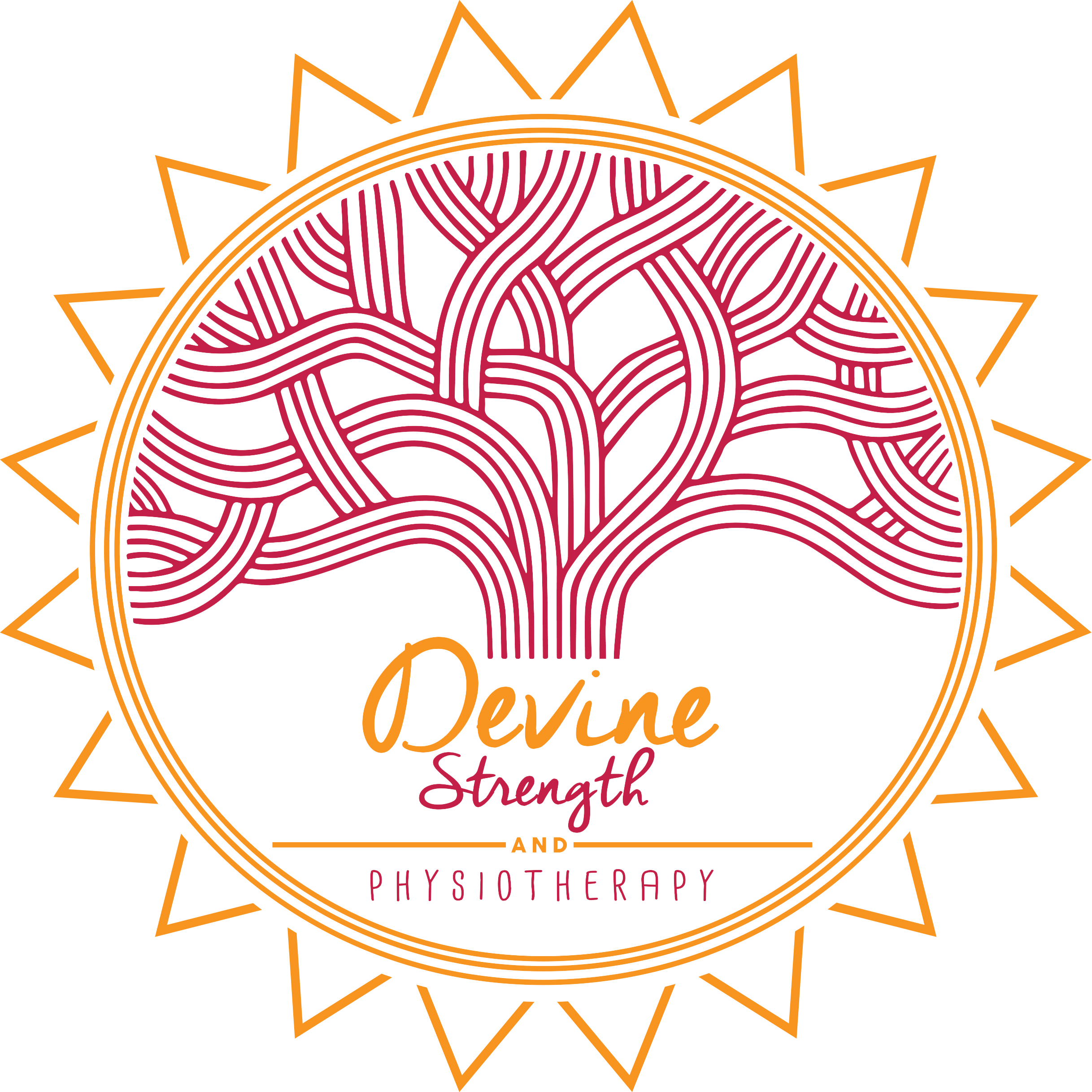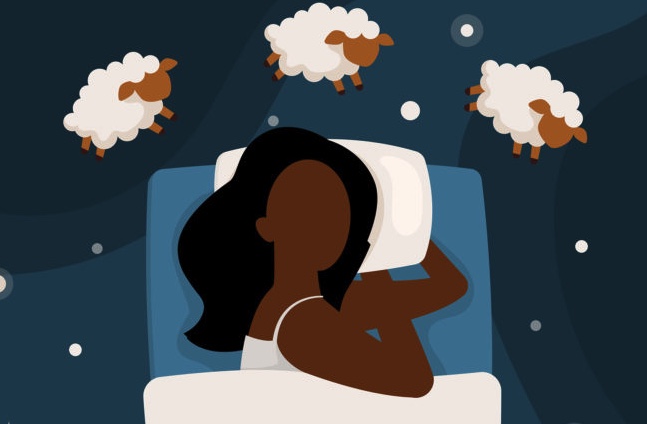SLEEP the ultimate tonic for all of your woes. Sleep is the vital nutrient we need to help the body heal and revitalize. Like Dr. Ruth said, “It’s basically free medicine.” Sleep is one of most taken for granted necessities of life. We spend a third of our life sleeping yet one the first things we will cut out is sleep. When we have a project to get done, we stay up late rather than waking up early. When the weekend comes, let’s stay up late and live it up rather than keep the sleep routine we have been doing for the 5 other days of the week. Experts say we need on average 7-9 hours of good quality sleep. How many hours are you getting?
Sleep tips:
Phone/TV/Laptop/Lights: If you try just one sleep hack, this would be the easiest one to implement. Junk light or the blue light that emits from your smartphone, laptop, and tablet screens, TV is wrecking your sleep and circadian rhythm. Too much blue light messes with your brain’s production of melatonin, the hormone that tells your body when it’s time to start winding down for bed. Blue light wakes you up and tells your brain that it’s daytime, and is on the same wavelength as the light emitted from the sun. Screens aren’t the only source of junk light: street lamps and LED light bulbs are also to blame.
The best ways to protect yourself from too much blue light exposure:
- Use blackout curtains
- Unplug unnecessary electronics in your bedroom
- Wear blue light blocking glasses (True DarK)
- Shut down electronic devices two hours before bed
- Increase the warm light setting on your phone
- Wear an eye mask when sleeping
- Use a salt lamp, candles or other forms of warm ambient light near bedtime
- Make sure your laptop and smartphone have a blue light filter, even then reduce time looking at your phone before bed.
- Put your phone on airplane mode if it must be by you when sleeping.
Think of the ideal bedroom as a prehistoric cave somewhere in the Great North: cool, dark, and gadget-free. Charge your phone in another room, get rid of electronics that cause noise, and ditch the alarm clock, which can make you hyper-aware of every passing minute.
Temperature:
The temperature you fall asleep at can have profound effects on your sleep. Think…when it is a hot night and no AC, you toss and turn trying to find a way to cool yourself off. When it is a cold out, you cuddle up and get comfy and typically fall asleep right away.
I know it sounds contradictory, but taking a hot bath before bed can drop your body temperature once you’re in bed, in addition to making you feel sleepier and more relaxed. Opening a window or having a fan going to keep your room at a cooler temperature helps facilitate sleep. Based on studies, the ideal sleep room temperature would be 68 degrees +/- 1 degree. [1]
Supplements: Always check with your physician on supplementation and your medication.
- Magnesium – upwards of 60% of the population is deficient – try up to 400 mg. Too much will give you disaster pants (i.e. gut discomfort/loose stools), which doesn’t help you sleep! Magnesium is a vital cofactor used in over 300 enzyme systems in the body.The best form of magnesium for sleep is magnesium glycinate [2] The best forms are the *ates, including malate, citrate, aspartate, and others.
- Potassium is a synergist with magnesium; the combination can remove nighttime leg cramps for most people leading to more less interrupted sleep. My preferred forms are citrate and the harder to find potassium bicarbonate.The bicarbonate form is a part of the kreb’s energy cycle and can help you make more ATP. Becareful, as all potassium supplements can conceivably interrupt your heart, so you should not mega-dose. I will take 200-400mg of potassium citrate at bedtime. Start with 100-200 and work your way up from there if you feel you need more. (you very well may)
- L-theanine in capsule form (not tea) helps with relaxation. I use 100mg of SunTheanine at night.
- Chamomile tea or other bedtime teas containing valerian root, passionflower, lavender and oat straw work really well at calming the mind and helping you fall asleep. I make my own bedtime tea w/ herbs from my garden and Mountain Rose Herbs. I can give you the recipe if you like.
- Ornithine is a relaxing amino acid that helps your body to eliminate ammonia in the gut An excess of ammonia in the gut can cause stressful feelings. Ornithine can be effective at helping some people sleep..Try 1-5 grams.
- 5-htp is a precursor to serotonin and melatonin, the neurohormones that make you happy and sleep, respectively. 5-HTP is converted from the amino acid tryptophan, then converted into those helpful neurotransmitters. With stress, health history and gut inflammation your body can sometimes struggle with these conversions. Supplementing with 5-HTP, which readily crosses the blood-brain-barrier to create the happy hormone serotonin, is the easiest way to organically support your levels of mood-lifting and sleep-inducing brain chemicals. This can be super helpful if you’re having trouble sleeping. However, I do recommend cycling on and off with this one or use as needed.
Food:
What you eat can have profound effects on your sleep. Eating a diet rich in good fats, protein, vegetables and fruit can keep your body functioning at optimal levels allowing for sleep to be easier.Your brain is the fattiest organ in the body. High-quality fats like grass-fed butter and wild-caught fish nourish your brain so it can do its job and repair itself while you sleep.The right fats also keep your blood sugar steady and hunger pangs at bay. Filling up on fat at dinner means you’re less likely to find yourself poking around the fridge at midnight. When it comes to late-night eating, small snacks are preferable to heavy meals, which can cause indigestion that interferes with your sleep. If you have to have a snack, try a high quality fat snack. Try to have your last meal a couple of hours before bed. Avoid drinking fluids a couple of hours before bedtime to prevent frequent bathroom trips in the middle of the night, interrupting sleep. If you like a bedtime tea, try to have it at least 30 minutes before bed. This gives the herbs time to digest and start working as well as allowing you one last time to empty the bladder before bed.
Alcohol, Marijuana, Caffeine etc..
Alcohol in the evening may help you relax, but too much of it can contribute to a lack of sleep. Alcohol robs you of REM sleep, the deep slumber your brain requires for optimal restoration. Heavy alcohol consumption can also impair your breathing at night, leading to sleep apnea type state and depriving your brain of precious oxygen. Long term marijuana use has similar effects as alcohol; reducing deep sleep, difficulty falling asleep, less sleep overall.[8]
Stimulants such as caffeine and nicotine have commonly been used to combat sleep and tiredness for years. Caffeine temporarily blocks the signal from adenosine, a crucial sleep chemical in your brain, which nonetheless continues to accumulate. This pent-up adenosine eventually breaks through, causing a dramatic crash, often at inopportune times. Nicotine, another stimulant, can lead to very light sleep. I recommend not drinking caffeine after 2pm to reduce risks of disrupting your circadian rhythm.
Reduce Stress/Meditate:
You turn the light off at a reasonable hour, nestle into your pillow, and…BOOM your thoughts start going a mile-a-minute. Did you reply to that email from your boss? What should you pack the kids for lunch tomorrow? Are you living up to your potential? Why did I say that to my partner? Planning the agenda for the next day? If this sounds familiar, your stress and anxiety is getting in the way of you and some quality shut-eye. That’s where meditation comes in.
Science shows that meditation significantly lowers stress and reduces anxiety.[4][5] Meditation makes you aware of your automatic thoughts and impulses, and with that awareness comes more control. You learn to differentiate between a helpful thought and a destructive one. Meditation also rewires your brain, strengthening neural pathways that calm your nervous system.[6]
More and more media is covering the benefits of meditation. Just like sleep, meditation is another FREE tool we can use to optimize not only our sleep, but our whole being. Starting with just 5 minutes of meditation with the goal of working your way up to 20 minutes per day will give you the benefit and motivation to continue improving. Once you work your way up to 20 minutes per day, amazing benefits happen to your health and how you show up in your experience. If you are having difficulties starting your own meditative practice, meditate with a friend or a group. Meditating with a group can make it easier to drop into a meditative space. Dr. Jake and Dr. Devin are certified meditation coaches and offer free meditations. And on days when you are feeling too stressed and can’t fall asleep right away, try a yoga nidra guided meditation. It will feel like you got a full night’s rest afterwards. I, also, recommend looking into the Art Of Living Foundation’s SKY breath course.
Routine:
Your body’s internal clock follows a specific sleep-wake cycle. Going to bed late one night and early the next throws your circadian rhythm off balance. Attempting to catch-up on missed sleep over the weekend may not always be effective and can result in physical and mental fatigue. . Your circadian rhythm is your internal body clock, and it’s going to look different than your partner’s or neighbor’s. When you go to sleep and wake up in accordance with your body’s natural circadian rhythm, you’ll sleep better, and be more alert and productive during the day. Thus, adhering to a daily sleep schedule can be highly beneficial for your overall health and well-being. Dr. Michael Breus, a clinical psychologist and sleep expert, has done extensive research on circadian rhythm and identified four sleep chronotypes (aka your circadian rhythm personality). His book The Power of When goes into more details on how to develop an optimal routine for you specific chronotype.
These are the 4 chronotypes:
- Bear: Most people fall into this category. Bears’ circadian rhythm follows the sun, and they sleep easily. If you’re a bear, recharge during the mid-afternoon, when bears feel an energy dip.
- Wolf: If you’re a night person (aka wolf), burn the midnight oil and go to bed later so there will be less tossing and turning. Get most of your work done between noon and 2pm, and around 5pm — those are wolves’ most productive times of day.
- Lion: Lions wake up early and power through the morning. If you’re a lion, go to bed early instead of binging on Netflix.
- Dolphin: If you struggle to fall asleep and wake up frequently during the night, you’re a dolphin. Schedule your most demanding work between mid-morning and early afternoon.
There are a plethora of sleep devices out on the market to help optimize your sleep. While I won’t go into detail of all the devices, I will recommend the Oura ring. It is my favorite and least obtrusive of the monitoring devices out there. I typically stay away from technology when it comes to sleep, but if you must have some, then the Oura ring is best.
Sleep is vital for body repair and optimal mental function. There are a lot of other things that go into optimal sleep. Next time, I will go over proper pillow selection, optimal sleep positions and a little bit on mattress selection.
Sources:
[2] https://www.ncbi.nlm.nih.gov/pmc/articles/PMC5452159/
[4] https://www.ncbi.nlm.nih.gov/pubmed/24395196
[5] https://www.sciencedirect.com/science/article/pii/S088915911…
[6] https://www.ncbi.nlm.nih.gov/pmc/articles/PMC3004979/
[7] The Power of When by Dr. Michael Breus

